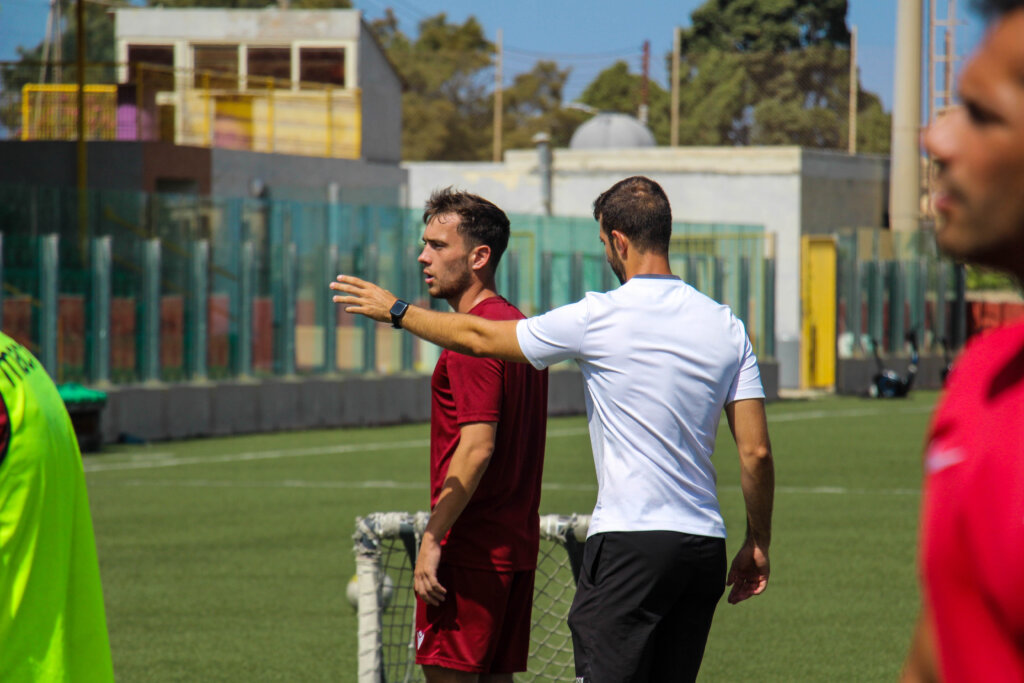Football is more than just a game; it is a passion that unites millions of people around the world.
At the heart of this sport lies a figure often underestimated yet essential: the coach.
The football coach is not only responsible for strategy and tactics, but also for the development and well-being of his players.
In this article, we will dive into the world of the football coach, explore the qualities required to excel in this role, and understand how these men and women shape the future of football.
From the management of the stars of the game to the formation of young talents, coaches play a key role in the success and failure of teams and clubs.
Summary
ToggleI. Coach's role in football
The football coach is not just a strategist, but also a mentor, psychologist and leader. Its role goes far beyond simple management of gambling tactics.
The coach is responsible for the technical, physical and mental preparation of the team.
You must develop a game plan that highlights the strengths of your players while minimizing your weaknesses.
The coach must also be able to read the game and make real-time tactical changes to adapt to different match situations.
The importance of the coach for the team's success
The success of a football team depends heavily on the quality of their coach.
A good coach knows how to motivate players, manage diverse personalities and create a team environment where everyone works for the common good.
The coach must also know how to manage pressure and expectations, not only from the players and fans, but also from the media and club management.
Furthermore, the coach plays a vital role in football. He is the brain behind the strategy, the heart behind the motivation, and the pillar on which team spirit is built.
Without a skilled coach, even the most talented teams can struggle to reach their full potential.
This is why the coach is often considered the most important factor in the success or failure of a football team.
II. The essential skills of a good coach de football
A good football coach is far more than just a sports technician; he is a leader, a mentor and a strategist.
Below are the essential skills every soccer coach must possess to lead his team to victory.
1. Tactical knowledge of the game
A coach must have a deep understanding of football strategies and tactics.
This includes not only playing formations and motion patterns in the field, but also the ability to read the opponent's game and adapt accordingly.
2. Capacity to motivate players
Motivation is crucial in sport. A coach must know how to inspire and encourage their players, giving them the confidence and determination needed to push themselves, both individually and collectively.
3. Conflict management and pressure
Football is a sport where emotions can run high.
A good coach must know how to manage conflicts within the team and maintain a positive environment, even under the pressure of important matches and high expectations.
In addition to these skills, a coach must also have excellent communication abilities, an understanding of the physical and psychological needs of their players, and a strong commitment to continuous learning and improvement.
With these qualities, a football coach can not only develop individual talents but also forge a strong, united team ready to face any challenge.
III. The formation and evolution of the career of a Football trainer
A football coach’s career is shaped by ongoing training, certifications, and practical experiences that enhance their expertise and understanding of the game.
To pursue a career in football coaching, it is essential to follow a structured pathway that combines theory and practice.
Diplomas and certifications required
The foundation of a football coach’s training often begins with the Brevet de Moniteur de Football (BMF), which allows coaching at a district level and provides the fundamental skills in team management and organisation.
To progress further, the Brevet d’Entraîneur de Football (BEF) is the next step, aimed at a regional level and providing more advanced training in designing training programmes and team management.
For those aiming for the pinnacle of the profession, the Brevet d’Entraîneur Professionnel de Football (BEPF) is essential.
This title is usually reserved for coaches who wish to direct professional teams and requires a thorough knowledge of the technical, tactical, physical and psychological aspects of football.
Field experience and stages
Practical experience is as crucial as theoretical training.
Internships and on-field experience allow football coaches to apply their knowledge, develop their coaching style, and understand the dynamics of a team.
Internships can range from observing and assisting experienced coaches to independently managing a team in a competitive environment.
The internship report is a key element of the training process, as it allows reflection on the experience gained and demonstrates the ability to analyse and adapt to the various situations encountered on the field.
In summary, the training and career development of a football coach are continuous processes that demand dedication, passion for the game, and a commitment to constantly learning and adapting.
With the right degrees, certifications, and a wealth of experience, a coach can hope to lead his or her team to victory and perhaps even leave an indelible mark on football history.

IV. The challenges facing football coaches
The role of a football coach goes far beyond simply managing tactics and training in the field.
They face a multitude of challenges that test their leadership skills, their resilience, and their ability to inspire a team.
First of all, managing the diverse personalities of players is an art in itself.
Each player brings their own set of skills, experiences, and personality traits.
Some may be natural leaders, others may be loners, and some may even be troublemakers.
The coach must find a balance, creating an environment where all players can thrive and contribute to the team’s success.
Secondly, making crucial decisions during matches is a constant pressure.
Each decision, whether tactical changes or substitutions, can change the course of a party.
These decisions often have to be made quickly, under the weight of expectations from the fans, the media, and the club.
This requires not only a deep understanding of the game, but also the ability to remain calm under pressure.
These challenges are just the tip of the iceberg in the complex and demanding career of a football coach.
Football coaches also have to manage media relations, fan expectations, and, of course, on-field results.
It is a profession that demands passion, dedication and a constant willingness to adapt and learn.
For those who accept the challenge, it is a career that can be incredibly rewarding.
Conclusion
The coach's role in football is undoubtedly central.
It is a figure that goes beyond strategy and tactics, also influencing the personal and professional development of the players. The coach is often seen as a mentor, a guide and sometimes even a friend.
He is the one who inspires, motivates and pushes the team to overcome themselves.
The career of a football coach is demanding and requires unwavering devotion, a deep understanding of the game, and the ability to manage the different personalities of the players.
It is a profession that requires resilience in the face of constant challenges and pressure.
Yet, despite these challenges, it is a rewarding career, full of passion and emotion.
In conclusion, the football coach plays a vital role not only in the success of the team, but also in the lives of the players.
It is a career that deserves to be pursued with passion, commitment and integrity.
For those willing to take on the challenge, the world of football offers unlimited opportunities to leave an indelible mark in the history of sport.

